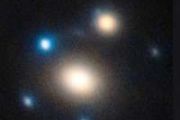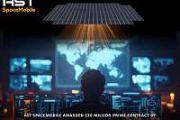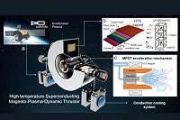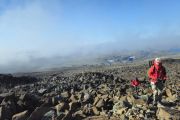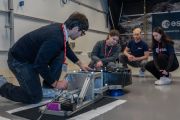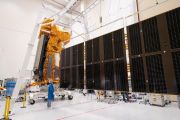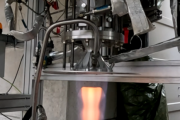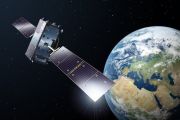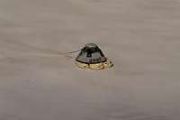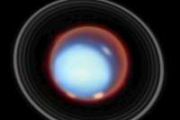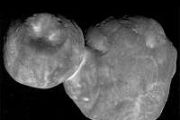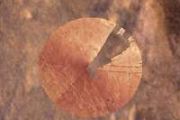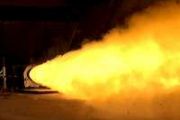
Copernical Team
ESA and CNES collaborate towards a European Space Transportation Hub

ESA and the French space agency, CNES, are exploring together the possibility to create a European Space Transportation Hub.
Solar Orbiter returns to Earth before starting its main science mission
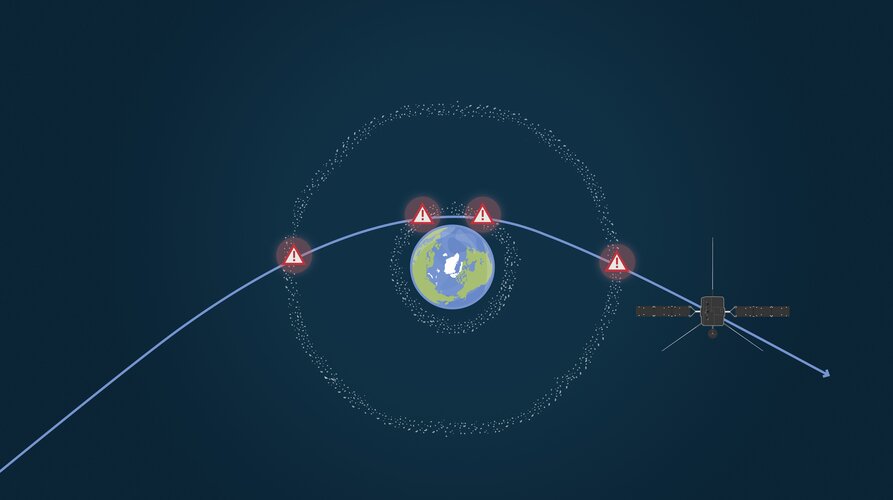
Solar Orbiter is returning to Earth for a flyby before starting its main science mission to explore the Sun and its connection to ‘space weather’. During the flyby Solar Orbiter must pass through the clouds of space debris that surround our planet, making this manoeuvre the riskiest flyby yet for a science mission.
Pangea Aerospace hot fire tests the first MethaLox aerospike engine in the world
 Pangea Aerospace, a company from Barcelona (Spain), has fired several times the first MethaLox aerospike engine in the world in their first try, at DLR Lampoldshausen facilities. The company has reached a major milestone for rocket propulsion, after the success of the hot fire test campaign of its aerospike engine. Pangea Aerosapce has ignited and hot fired several times a 20kN regeneratively co
Pangea Aerospace, a company from Barcelona (Spain), has fired several times the first MethaLox aerospike engine in the world in their first try, at DLR Lampoldshausen facilities. The company has reached a major milestone for rocket propulsion, after the success of the hot fire test campaign of its aerospike engine. Pangea Aerosapce has ignited and hot fired several times a 20kN regeneratively co Arianespace to launch Australian satellite Optus-11 with Ariane 6
 Arianespace and Australian operator SingTel Optus signed the launch contract for the Optus-11 communications satellite. The launch, scheduled for the second half of 2023, will use the Ariane 64 version of the Ariane 6 launcher, with four solid boosters.
Optus-11 is a Ku-band communications satellite with a coverage zone encompassing Australia and New Zealand. Optus-11 incorporates a number
Arianespace and Australian operator SingTel Optus signed the launch contract for the Optus-11 communications satellite. The launch, scheduled for the second half of 2023, will use the Ariane 64 version of the Ariane 6 launcher, with four solid boosters.
Optus-11 is a Ku-band communications satellite with a coverage zone encompassing Australia and New Zealand. Optus-11 incorporates a number First all-private space station mission to include two dozen experiments
 A private space company that's planning to send the first all-private crew to the International Space Station announced on Wednesday that they will conduct medical and scientific experiments during their time in low Earth orbit.
Axiom Space said former NASA astronaut Michael Lopez-Alegria will command the crew of four, who will fly to the space station on a SpaceX rocket in February. Th
A private space company that's planning to send the first all-private crew to the International Space Station announced on Wednesday that they will conduct medical and scientific experiments during their time in low Earth orbit.
Axiom Space said former NASA astronaut Michael Lopez-Alegria will command the crew of four, who will fly to the space station on a SpaceX rocket in February. Th NASA Selects Intuitive Machines for New Lunar Science Delivery
 NASA has awarded Intuitive Machines of Houston a contract to deliver research, including science investigations and a technology demonstration, to the Moon in 2024. The commercial delivery is part of NASA's Commercial Lunar Payload Services (CLPS) initiative and the Artemis program.
The investigations aboard Intuitive Machines' Nova-C lander are destined for Reiner Gamma, one of the most d
NASA has awarded Intuitive Machines of Houston a contract to deliver research, including science investigations and a technology demonstration, to the Moon in 2024. The commercial delivery is part of NASA's Commercial Lunar Payload Services (CLPS) initiative and the Artemis program.
The investigations aboard Intuitive Machines' Nova-C lander are destined for Reiner Gamma, one of the most d Life on Mars search could be misled by false fossils
 Mars explorers searching for signs of ancient life could be fooled by fossil-like specimens created by chemical processes, research suggests.
Rocks on Mars may contain numerous types of non-biological deposits that look similar to the kinds of fossils likely to be found if the planet ever supported life, a study says.
Telling these false fossils apart
Mars explorers searching for signs of ancient life could be fooled by fossil-like specimens created by chemical processes, research suggests.
Rocks on Mars may contain numerous types of non-biological deposits that look similar to the kinds of fossils likely to be found if the planet ever supported life, a study says.
Telling these false fossils apart Celestia STS introduces new approach to spacecraft test and simulation
 Celestia STS, a specialist in ground-based solutions for satellite testing, communications and data processing, has launched MPIP, a multi-purpose interface platform that offers a novel approach to spacecraft test and simulation.
MPIP is a modular, scalable electrical ground support equipment (EGSE) that enables space equipment builders or integrators to test and simulate different electri
Celestia STS, a specialist in ground-based solutions for satellite testing, communications and data processing, has launched MPIP, a multi-purpose interface platform that offers a novel approach to spacecraft test and simulation.
MPIP is a modular, scalable electrical ground support equipment (EGSE) that enables space equipment builders or integrators to test and simulate different electri CERES reconnaissance space system designed by Airbus and Thales launched
 The CERES space system (Capacite de Renseignement Electromagnetique Spatiale or Space-based Signal Intelligence Capability) satellites designed and built by Airbus Defence and Space and Thales for the French Armament General Directorate (DGA) have been successfully launched from the European spaceport in French Guiana, on-board a Vega launcher.
"We are ready to go with the next generation
The CERES space system (Capacite de Renseignement Electromagnetique Spatiale or Space-based Signal Intelligence Capability) satellites designed and built by Airbus Defence and Space and Thales for the French Armament General Directorate (DGA) have been successfully launched from the European spaceport in French Guiana, on-board a Vega launcher.
"We are ready to go with the next generation Sino-Russian center for space weather monitoring operational
 A space weather center set up by China and Russia began operating on Tuesday to provide services for aviation operators around the world.
The China-Russia Consortium Global Space Weather Center monitors space weather events including solar activities and releases advisories for aviation operators, said Zhang Xiaoxin, director of the National Satellite Meteorological Center's space weather
A space weather center set up by China and Russia began operating on Tuesday to provide services for aviation operators around the world.
The China-Russia Consortium Global Space Weather Center monitors space weather events including solar activities and releases advisories for aviation operators, said Zhang Xiaoxin, director of the National Satellite Meteorological Center's space weather 







